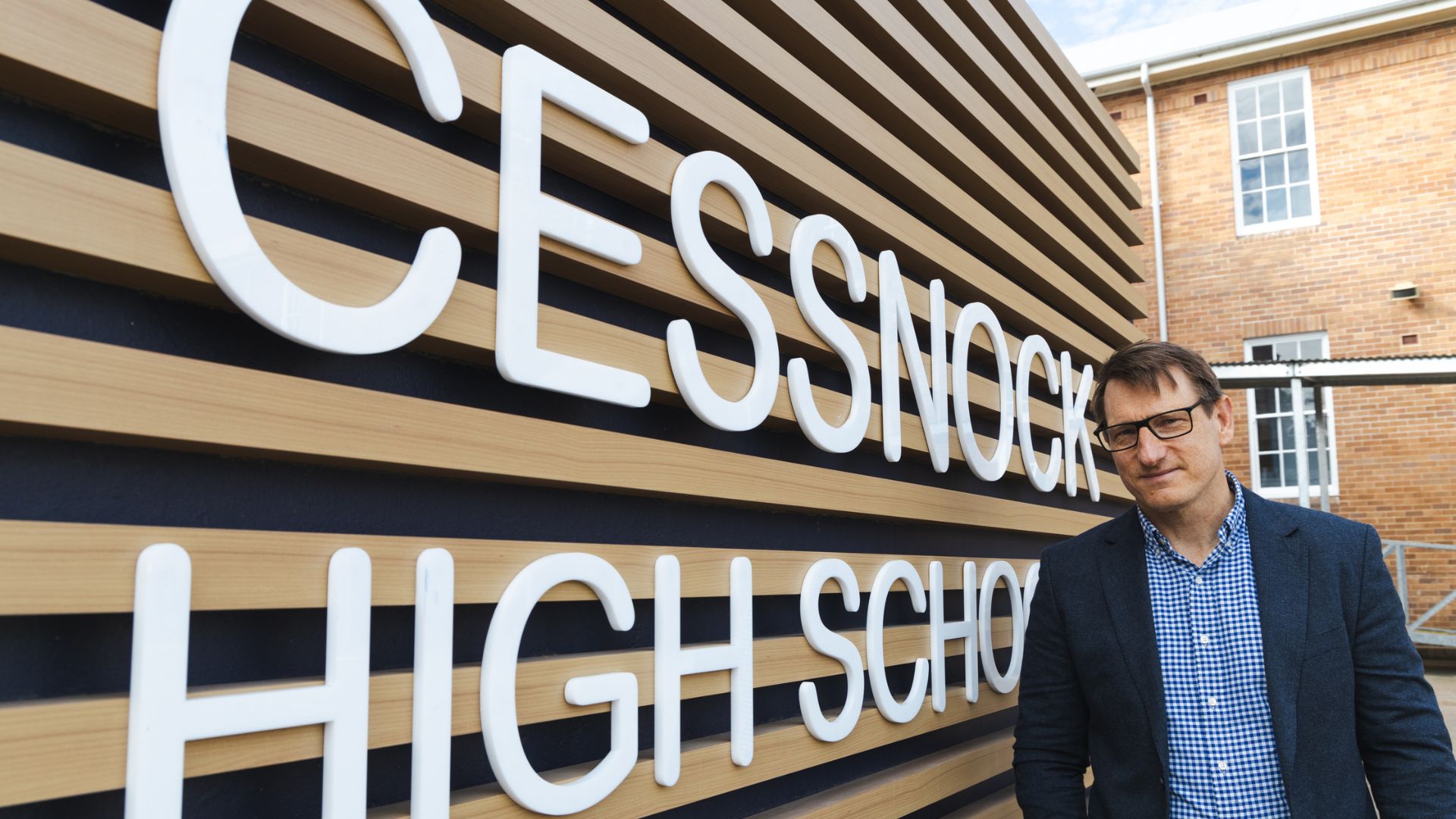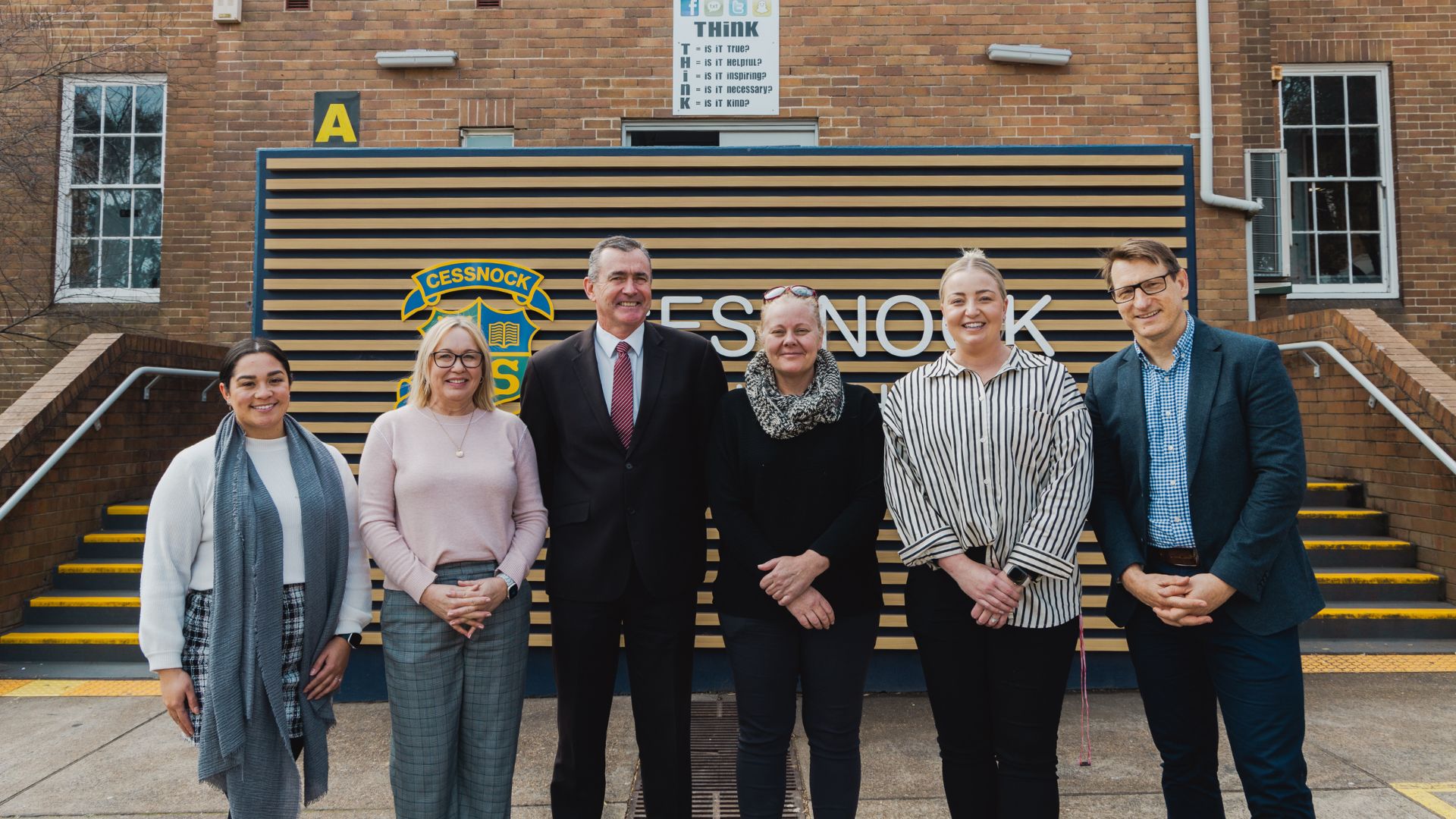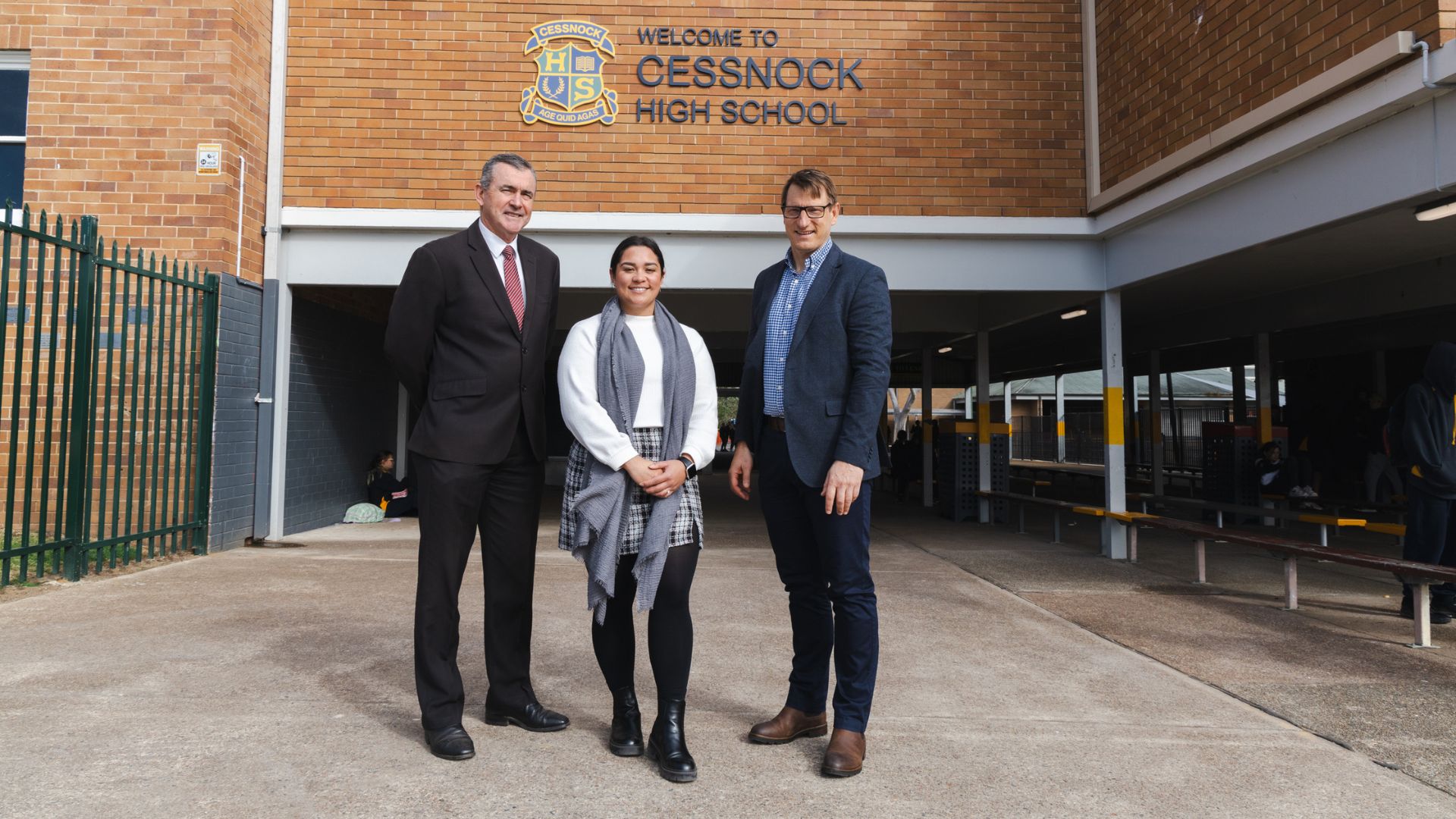Key Points
-
UON’s TTRC won the Community Engagement Award at the 2024 Australian Financial Review Higher Education Awards for their partnership with Cessnock High School.
-
Cessnock High School is one of the most disadvantaged schools in NSW. The results achieved through the partnership have been remarkable.
-
The award is a testament to what can be achieved when universities and schools collaborate to address educational inequalities.
The University of Newcastle’s Teachers and Teaching Research Centre (TTRC) won the Australian Financial Review (AFR) Community Engagement Award at the 2024 Higher Education Awards.
This national award celebrates the outstanding impact of the Centre’s partnership with Cessnock High School which centred on Quality Teaching Rounds (QTR).
The AFR Community Engagement Award acknowledges the significant efforts of higher education institutions in improving the lives of people within their communities. The collaboration between the TTRC and Cessnock High School has resulted in dramatic improvements to teaching, student engagement, education outcomes and student outlooks, all of which are driving positive change in this historically disadvantaged community.
Dr Drew Miller, TTRC Deputy Director and leader of the partnership with Cessnock High School, accepted the award and acknowledged the incredible efforts of the school’s teachers.
“The results at Cessnock are remarkable and are testament to the hard work of the teachers, school leaders, and team at the University’s Teachers and Teaching Research Centre.,” Drew stated.
It is a testament to what can be achieved when universities and schools collaborate to address educational inequalities.

Remarkable outcomes and broad impact
Cessnock High School is one of the most disadvantaged schools in NSW. Almost 25 per cent of its students identify as Indigenous and more than 70 per cent of families are positioned in the bottom quartile for socio-economic advantage. Cessnock High faced numerous challenges, including low engagement, poor academic performance, and behavioural issues.
When Peter Riley was appointed Principal of Cessnock High School in late 2019, he set out to transform the school’s culture through great teaching and high expectations. Peter engaged the TTRC to help achieve his goal of improving teaching and student outcomes at Cessnock High School.
In 2020, Drew began to design a research partnership with the school. Along with colleagues, Drew worked alongside Peter and his leadership team to develop a four-year Quality Teaching Action Plan, centred on the QT Model, QTR and other QT professional development and teacher capacity building activities.
The results achieved at Cessnock High School have been remarkable. In 2023, Cessnock High School ranked first in the Hunter region and 11th among NSW public schools for improvement in Year 7-9 NAPLAN results. Cessnock students’ HSC results also improved by more than 50 per cent in 2022 and 2023, including achieving their first ever Band 6 result.
Student attendance and engagement grew by seven per cent – triple the average across the state. Positive behaviour referrals were up 130 per cent in 2023 while negative behaviours significantly decreased. Despite major teacher shortages at the school and across the country, teacher survey responses showed crucial improvements in their levels of morale and efficacy, school belonging, and perceptions of their leadership team. The school has also built stronger ties with its community and has changed the sentiment about Cessnock High more broadly.
The success at Cessnock High has paved the way for the expansion of QTR to other schools facing similar challenges. The TTRC, supported by the Paul Ramsay Foundation and NSW Department of Education, is preparing to implement this model of partnerships in 25 of the state’s most disadvantaged schools. This expansion is part of the Thriving Schools project, aiming to replicate the success seen at Cessnock High and extend the benefits of high-quality, evidence-based teaching across NSW.
A model for future success
Educational inequality is an enduring, growing, and incredibly complex problem in Australia. Winning the Community Engagement Award highlights the TTRC’s leadership in addressing educational disparities through innovative and collaborative approaches.
QTR is one initiative with broad impact. Used in this whole-school approach demonstrates how partnering with schools can enhance educational outcomes, foster a culture of learning and help to break cycle of disadvantage, building brighter futures for students and their communities.
“It has created a rewarding learning community among teachers, between teachers and students, and between the school and the university,” Drew said.
The ARF Community Engagement Award is not just a recognition of past accomplishments but a call to continue expanding and deepening engagement efforts, ensuring that high-quality education is accessible to all.



